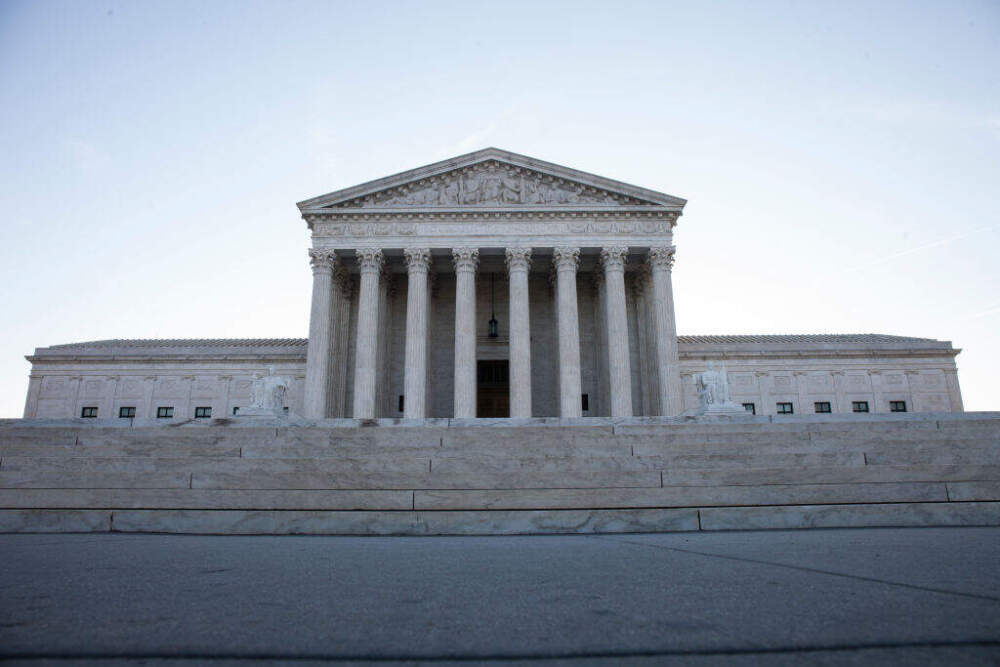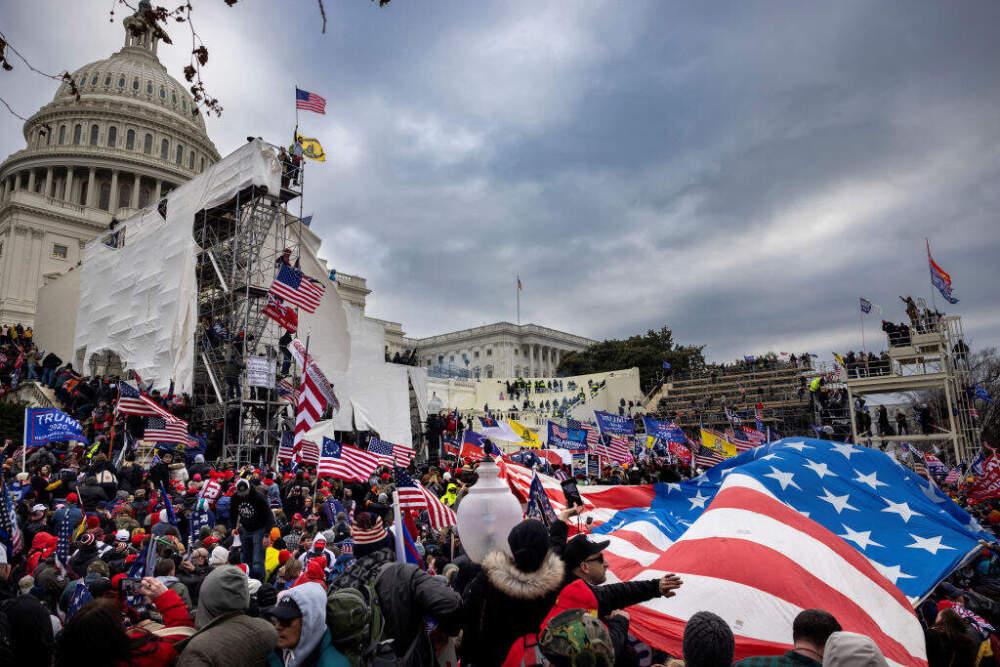Advertisement
Commentary
Donald Trump is not immune from prosecution for his actions on Jan. 6

In Donald J. Trump v. United States the Supreme Court will answer one simple question: Is the president immune from criminal prosecution for conduct alleged to involve official acts during his tenure in office?
The Court doesn’t do so in a vacuum.
Four lower court judges have already concluded that Trump is not immune from the accusations in the government’s January 6 indictment.
U.S. District Court Judge Tanya Chutkan, who is presiding over the January 6 case, made it clear that:
[w]hatever immunities a sitting president may enjoy, the United States has only one chief executive at a time, and that position does not confer a lifelong ‘get-out-of-jail-free’ pass.
The decision of U.S. Court of Appeals for the D.C. Circuit, was also unequivocal:
For the purpose of this criminal case, former President Trump has become citizen Trump, with all the defenses of any other criminal defendant. But any executive immunity that may have protected him while he served as President no longer protects him against this prosecution.
That ruling was unanimous, and it included the vote of a Karen Henderson, a conservative judge appointed by former President George H.W. Bush.
A decision to delay is a decision. It is a decision to block federal trials from being completed before the election.
Given the clarity of those decisions, it would have been easy for the U.S. Supreme Court to deny certiorari (an order by which a higher court reviews a decision of a lower court) or at the very least, to put the case on an expedited track. Indeed, Special Prosecutor Jack Smith asked for expedited review last December, after Judge Chutkan’s decision. It was denied.
When the Supreme Court accepted certiorari on February 28, 2024, Smith asked for review on an expedited schedule. The Court did no such thing. It scheduled oral argument for April 25, 2024, as if it were an ordinary case. It suggested there may be no decision until the end of June, when the Court’s opinions are issued.
But this is no ordinary case. A decision to delay is a decision. It is a decision to block federal trials from being completed before the election. It is a decision to keep the question — did Trump commit a crime? — unanswered before the American people must vote.
Advertisement
Long before there ever was a President Donald Trump, the Supreme Court handled cases of historic importance with extraordinary speed befitting their status.
A few examples. In Ex Parte Quirin, German citizens who were being tried before a military commission on spying charges during World War II, challenged the legality of the commission. The Supreme Court announced its decision — upholding the jurisdiction of the military commission — one day after oral argument, with the full decision filed months later.
More recently, in Bush v. Gore, the Court issued a decision just one day after oral argument.
And under Trump, many cases not only moved quickly, but bypassed all of the intermediate courts. The Supreme Court issued a decision 18 days after oral argument on Trump’s effort to exclude from the Census people who are not lawfully present in the United States.
Surely the January 6 indictment is as important, if not more. It charges a sustained effort by Trump to overturn the results of the 2020 presidential election, which Joe Biden clearly won.

The Supreme Court can make four choices in this case.
Choice one: Say that a president is immune from prosecution for acts done while in office. This is outrageous, inconsistent with the rule of law, and without grounding in the Constitution. As Ashkun Khardori wrote:
under that reading of the Constitution, a president who is angry about having to leave office after losing an election could nuke an American city at 11:59 a.m. on Jan. 20, right before his successor takes over, and be immune from criminal prosecution.
Choice two: Say that Trump is not immune, as the D.C. Circuit and Judge Chutkan held. This is fully consistent with constitutional law. Indeed, Justice Clarence Thomas, dissenting in Trump v. Vance (2020), a case where Trump objected to a subpoena for his financial records said:
This Court has recognized absolute immunity for the President from ‘damages liability predicated on his official acts,’ ... But we have rejected absolute immunity from damages actions for a President’s nonofficial conduct, Clinton v. Jones (1997).
Let’s not forget that during his second impeachment trial in the U.S. Senate, Trump — through his attorneys — argued against conviction on the ground that criminal investigation and prosecution were the appropriate processes for addressing President Trump’s alleged misconduct on January 6, 2021.
Choice three: Say the president may sometimes be immune, but not given the accusations in this case. This is also a reasonable position that would allow the January 6 prosecution to go forward, and leave the question of the breadth of presidential immunity in other cases to another day.
Choice four: Say the president may sometimes be immune, create a specific standard to determine when immunity is appropriate, and then remand the case to Judge Chutkan to decide whether this is one such case. This decision will mean yet another delay — and likely means the case will not be decided before Election Day in November. It may look neutral, but it most assuredly is not. It will mean — yet again — that the Supreme Court has put its finger on the scale.
